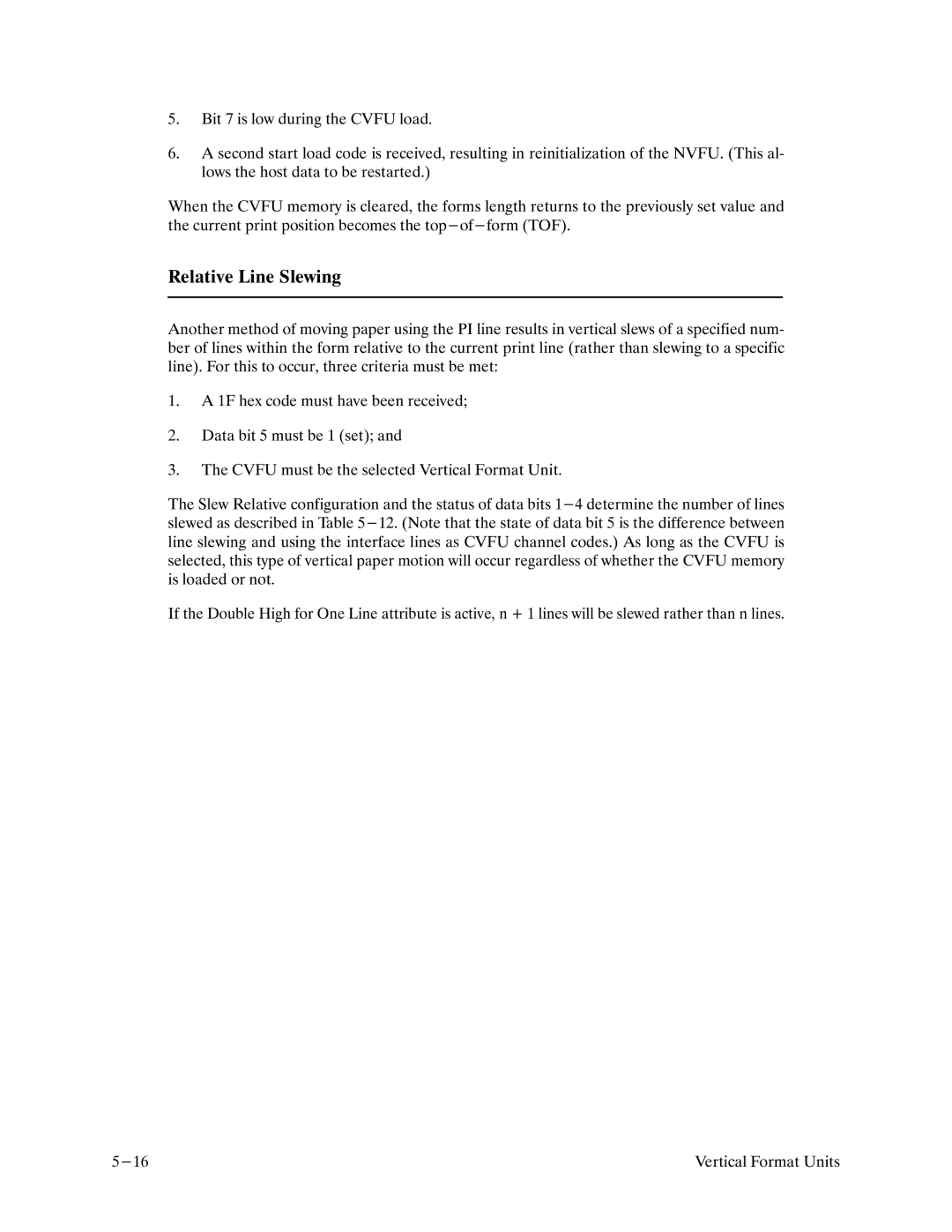5.Bit 7 is low during the CVFU load.
6.A second start load code is received, resulting in reinitialization of the NVFU. (This alF lows the host data to be restarted.)
When the CVFU memory is cleared, the forms length returns to the previously set value and the current print position becomes the
Relative Line Slewing
Another method of moving paper using the PI line results in vertical slews of a specified numF ber of lines within the form relative to the current print line (rather than slewing to a specific line). For this to occur, three criteria must be met:
1.A 1F hex code must have been received;
2.Data bit 5 must be 1 (set); and
3.The CVFU must be the selected Vertical Format Unit.
The Slew Relative configuration and the status of data bits
If the Double High for One Line attribute is active, n + 1 lines will be slewed rather than n lines.
Vertical Format Units |
